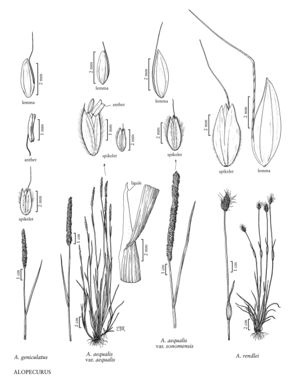Difference between revisions of "Alopecurus rendlei"
FNA>Volume Importer |
imported>Volume Importer |
||
| (3 intermediate revisions by 2 users not shown) | |||
| Line 4: | Line 4: | ||
|publications= | |publications= | ||
|common_names=Rendle's meadow foxtail | |common_names=Rendle's meadow foxtail | ||
| + | |special_status={{Treatment/ID/Special_status | ||
| + | |code=I | ||
| + | |label=Introduced | ||
| + | }} | ||
|basionyms= | |basionyms= | ||
|synonyms= | |synonyms= | ||
| Line 38: | Line 42: | ||
|publication title= | |publication title= | ||
|publication year= | |publication year= | ||
| − | |special status= | + | |special status=Introduced |
| − | |source xml=https:// | + | |source xml=https://bitbucket.org/aafc-mbb/fna-data-curation/src/200273ad09963decb8fc72550212de541d86569d/coarse_grained_fna_xml/V24/V24_1118.xml |
|subfamily=Poaceae subfam. Pooideae | |subfamily=Poaceae subfam. Pooideae | ||
|tribe=Poaceae tribe Poeae | |tribe=Poaceae tribe Poeae | ||
Latest revision as of 16:22, 11 May 2021
Plants annual; tufted. Culms 8-30(40) cm, erect or decumbent. Ligules 0.6-3 mm, obtuse; blades 1-16 cm long, 1-3 mm wide; upper sheaths inflated. Panicles 1-3.2 cm long, 5-11 mm wide. Glumes 5-6.4 mm, connate in the lower 1/4-1/3, dilated and coriaceous in the lower 1/2, pilose or glabrous in the lower 1/2, indurate and constricted above the middle, keels not winged, ciliate on all veins, apices acute, slightly divergent; lemmas 5.6-6.4 mm, connate basally, glabrous or puberulent distally, apices coriaceous, acuminate, awns 6.5-18 mm, geniculate, exceeding the lemmas by 0.8-7.2 mm; anthers about 3 mm. Caryposes 3.5-4.5 mm. 2n = 14.
Discussion
Alopecurus rendlei is native to wet meadows, and adventive in roadsides and waste places, in southern and western Europe. It was found growing on ballast in Philadelphia, Pennsylvania in 1880; it has not been collected in North America since then.
Selected References
None.
